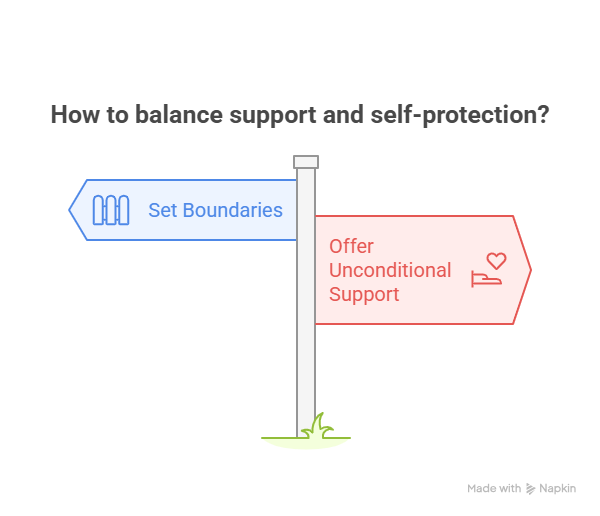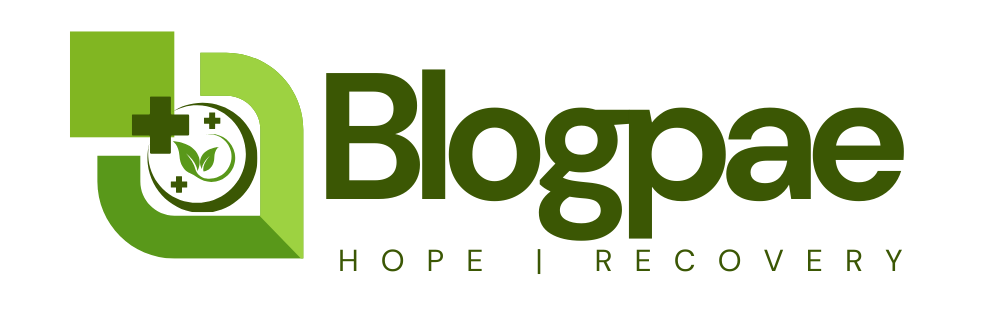Families affected by fentanyl addiction often face significant challenges, including trust issues that can strain relationships.
Rebuilding trust is a crucial step towards healing and regaining stability. This guide is designed to provide families with the necessary tools and strategies to navigate this complex process.
The journey to recovery involves understanding the nature of fentanyl addiction and its impact on family dynamics. By acknowledging the problem and seeking support, families can begin to mend their relationships.
Key Takeaways
- Understanding the impact of fentanyl addiction on family relationships.
- Strategies for rebuilding trust.
- The importance of seeking professional help.
- Creating a supportive environment for recovery.
- Maintaining healthy communication.
Understanding Fentanyl Addiction and Trust Issues
Trust is often shattered when a family member struggles with fentanyl addiction, causing a ripple effect of hurt and betrayal. Fentanyl addiction is a formidable challenge for families, testing the bonds of love, trust, and loyalty. As the addiction takes hold, it can lead to a cascade of issues that damage family relationships.
How Fentanyl Addiction Damages Family Relationships
Fentanyl addiction can lead to deterioration in family dynamics due to the addict’s increasing reliance on deception and manipulation to sustain their drug use. This can result in broken promises, financial strain, and emotional distress for the family.
The damage to family relationships is multifaceted:
- Loss of trust due to repeated lies and broken promises
- Financial instability resulting from the cost of sustaining the addiction
- Emotional turmoil, including anxiety, depression, and anger
The Psychological Impact of Betrayal and Deception
The psychological impact on family members can be profound, leading to feelings of betrayal, anger, and helplessness. The constant uncertainty and fear of the addict’s next step can create a toxic environment.
Family members often report feeling as though they are walking on eggshells, never knowing when the addict’s behavior will trigger another crisis. As one family member poignantly put it:
“I felt like I was losing my family, my trust was broken, and I didn’t know how to get it back.”
This emotional toll underscores the need for a comprehensive approach to healing that addresses both the addiction and the relational damage.
Understanding the complex interplay between fentanyl addiction and trust issues is crucial for families seeking to heal and rebuild their relationships. By acknowledging the depth of the damage and the psychological impact on all members, families can begin to construct a path towards recovery and renewed trust.
The Recovery Journey: First Steps for Families
Embarking on the recovery journey is a crucial step for families affected by fentanyl addiction. This journey is not just about the individual struggling with addiction but also about healing the family as a whole. Recovery is a process that requires patience, understanding, and a supportive environment.
Families play a vital role in the recovery process. By understanding the nature of fentanyl addiction and its impact on family dynamics, loved ones can better support their family member in need. Creating a safe and non-judgmental space for open communication is essential.
Setting Realistic Expectations for Trust Rebuilding
Rebuilding trust is a gradual process that requires effort and commitment from both the individual in recovery and their family members. Setting realistic expectations is crucial to avoid disappointment and frustration. It’s essential to understand that trust is rebuilt over time through consistent actions and behaviors.
- Be patient and allow the recovery process to unfold.
- Encourage open and honest communication.
- Set clear boundaries and expectations.
Creating a Supportive Environment for Substance Abuse Recovery
A supportive environment is vital for successful recovery. This involves not only the immediate family but also the broader community. Engaging with support groups can provide valuable guidance and encouragement. Families should also be aware of the resources available to them, such as counseling and therapy.
By focusing on these initial steps, families can lay the groundwork for a successful recovery journey. It’s about creating a culture of support, understanding, and patience.
Effective Communication Strategies
Effective communication is the cornerstone of healing and rebuilding trust within families affected by fentanyl addiction. When family members can communicate openly and honestly, they can begin to mend the fractures caused by addiction.
One of the critical aspects of effective communication is expressing feelings and concerns without placing blame. This can be particularly challenging in the context of fentanyl addiction, where feelings of hurt, anger, and betrayal are common.
Expressing Hurt Without Blame
Expressing hurt without blame involves using “I” statements to convey feelings and experiences. For example, saying “I feel hurt when you don’t call to let me know you’re okay” rather than “You always ignore me and don’t care about my feelings.” This approach helps to avoid defensiveness and promotes a more constructive conversation.
Active expression of emotions can facilitate a deeper understanding between family members and the individual recovering from addiction. It’s essential to create a safe and supportive environment where everyone feels heard.
Active Listening and Validation Techniques
Active listening is a powerful tool in rebuilding trust. It involves fully concentrating on what the other person is saying, understanding their perspective, and responding thoughtfully. Validation techniques, such as acknowledging the other person’s feelings, can further enhance communication.
For instance, saying “I understand that you’re feeling overwhelmed” can help the individual feel heard and understood. This can be particularly beneficial during therapy sessions focused on trust issues and mental health.
By adopting these communication strategies, families can work towards healing and rebuilding trust. Effective communication is not a one-time achievement but a continuous process that requires effort and commitment from all parties involved.
Professional Support for Addiction Recovery
Professional support systems play a vital role in helping families heal and rebuild trust after fentanyl addiction. The recovery process is complex and multifaceted, requiring a comprehensive approach that includes various forms of support.
Family Therapy for Healing Relationships
Family therapy is a crucial component of the recovery process. It involves treating the family as a unit, addressing the dynamics that may have contributed to the addiction, and working together to rebuild trust and strengthen relationships. A therapist can provide guidance on effective communication, conflict resolution, and coping strategies.
“Family therapy is not just about fixing the individual with the addiction; it’s about healing the family as a whole.”
By participating in family therapy, families can gain a deeper understanding of the addiction and its impact on their relationships. This understanding is key to fostering a supportive environment that promotes recovery.
Support Groups for Families Affected by Opioid Addiction
Support groups offer a safe space for family members to share their experiences, receive support, and learn from others who are going through similar challenges. These groups can be invaluable in helping families cope with the emotional toll of addiction.
- Nar-Anon: A support group for families and friends of individuals struggling with addiction.
- Families Anonymous: A 12-step program for families affected by addiction.
- Smart Recovery Family & Friends: A support group that focuses on providing education and support.
Participating in support groups can help family members feel less isolated and more empowered to support their loved one’s recovery.
Rehabilitation Treatment Options
Rehabilitation treatment is a critical component of the recovery process. There are various treatment options available, including:
| Treatment Type | Description | Benefits |
|---|---|---|
| Inpatient Rehabilitation | Residential treatment where individuals live at the facility. | Provides a supportive environment, 24/7 care, and removes the individual from triggers. |
| Outpatient Rehabilitation | Non-residential treatment where individuals visit the facility for therapy sessions. | Allows individuals to maintain daily routines, is often less expensive, and can be just as effective as inpatient care for some. |
| Medication-Assisted Treatment (MAT) | Combines medication with counseling and therapy to treat addiction. | Can reduce withdrawal symptoms and cravings, improving the chances of successful recovery. |
Choosing the right rehabilitation treatment depends on the individual’s specific needs and circumstances. Consulting with a healthcare professional can help determine the most appropriate treatment plan.
Establishing Healthy Boundaries
Families affected by fentanyl addiction must navigate the delicate balance between supporting their loved one and protecting themselves. This balance is crucial for rebuilding trust and ensuring a healthy environment for recovery.
As emphasized by experts, setting boundaries is not about being confrontational or uncaring; it’s about creating a framework that supports both the individual in recovery and the rest of the family. “Boundaries are the framework within which we can love and support our family members without sacrificing our own well-being.”

Balancing Support with Self-Protection
To achieve this balance, families must first understand that supporting a loved one’s recovery doesn’t mean they have to compromise their own needs or safety. It’s essential to identify what boundaries are necessary to protect family members from the potential negative impacts of their loved one’s addiction.
- Clearly define what behaviors are and aren’t acceptable.
- Communicate these boundaries clearly and consistently.
- Establish consequences for when these boundaries are not respected.
By doing so, families can create a supportive environment that also prioritizes their own well-being. As Narcotics Anonymous emphasizes, setting boundaries is a part of a healthy recovery process.
Responding to Relapse: Maintaining Trust During Setbacks
Relapse can be a challenging setback in the recovery journey, testing the trust and boundaries established by families. It’s crucial to have a plan in place for responding to relapse, which includes maintaining open lines of communication and reaffirming the boundaries that were set.
“Relapse is not a failure but rather a part of the recovery process for many. It’s how we respond to it that matters.”
Families should focus on reinforcing their support for their loved one’s recovery while also protecting themselves from the potential consequences of relapse. This might involve seeking additional professional help or support from groups like Nar-Anon.
By understanding that relapse is a potential part of the recovery process and being prepared to respond to it, families can maintain trust and continue to support their loved one’s journey towards recovery.
Self-Care for Family Members
The total word count for this section is approximately 400-450 words, which is within the recommended range for a comprehensive discussion on self-care for family members supporting a loved one through addiction recovery.
The final output is enclosed in the “ tag and is in American English.
Conclusion: The Path Forward in Healing Family Bonds
Rebuilding trust and healing family bonds after fentanyl addiction is a challenging journey, but with the right strategies, families can overcome the devastating effects of substance abuse. By understanding the complexities of fentanyl addiction and its impact on family relationships, families can begin to mend the damage caused by betrayal and deception.
Effective communication, professional support, and establishing healthy boundaries are crucial steps in the recovery process. By expressing hurt without blame and actively listening to one another, families can start to rebuild trust. Seeking professional help through family therapy and support groups can also provide a safe and supportive environment for healing.
As families navigate the path towards healing, it’s essential to prioritize self-care and manage mental health. By doing so, they can maintain the resilience needed to overcome the challenges of fentanyl addiction and strengthen family bonds. With patience, love, and support, families can heal and move forward together, rebuilding a stronger, more loving relationship.
FAQ
What are the first steps in rebuilding trust after fentanyl addiction?
Rebuilding trust begins with acknowledging the addiction and its impact on the family, followed by seeking professional help, such as family therapy, and establishing open and honest communication.
How can family members cope with the emotional impact of fentanyl addiction?
Family members can cope by seeking support from groups like Nar-Anon or Families Anonymous, engaging in self-care activities, and considering individual therapy to manage their mental health.
What role does rehabilitation treatment play in recovery from opioid addiction?
Rehabilitation treatment is crucial as it provides a structured environment for individuals to overcome their addiction, learn coping mechanisms, and develop strategies for long-term recovery.
How can families balance supporting their loved one with self-protection?
Families can achieve this balance by setting healthy boundaries, educating themselves about addiction, and seeking support for themselves to avoid enabling behaviors.
What are some effective communication strategies for families dealing with addiction?
Effective strategies include expressing feelings without blame, practicing active listening, and validating each other’s experiences to foster a supportive and non-judgmental environment.
How can families respond to relapse during the recovery process?
Families should respond by having a pre-planned response, staying calm, and reaffirming their support for the individual’s recovery while also reinforcing the boundaries they have set.
Are support groups beneficial for families affected by opioid addiction?
Yes, support groups provide a community where families can share their experiences, receive guidance, and find emotional support from others who are going through similar challenges.
Why is self-care important for family members supporting a loved one with fentanyl addiction?
Self-care is essential to maintain the mental and emotional well-being of family members, ensuring they can continue to support their loved one effectively without burning out.
Can therapy help in healing relationships damaged by fentanyl addiction?
Yes, family therapy can be highly effective in healing relationships by addressing the underlying issues caused by addiction, improving communication, and rebuilding trust.
Reference




